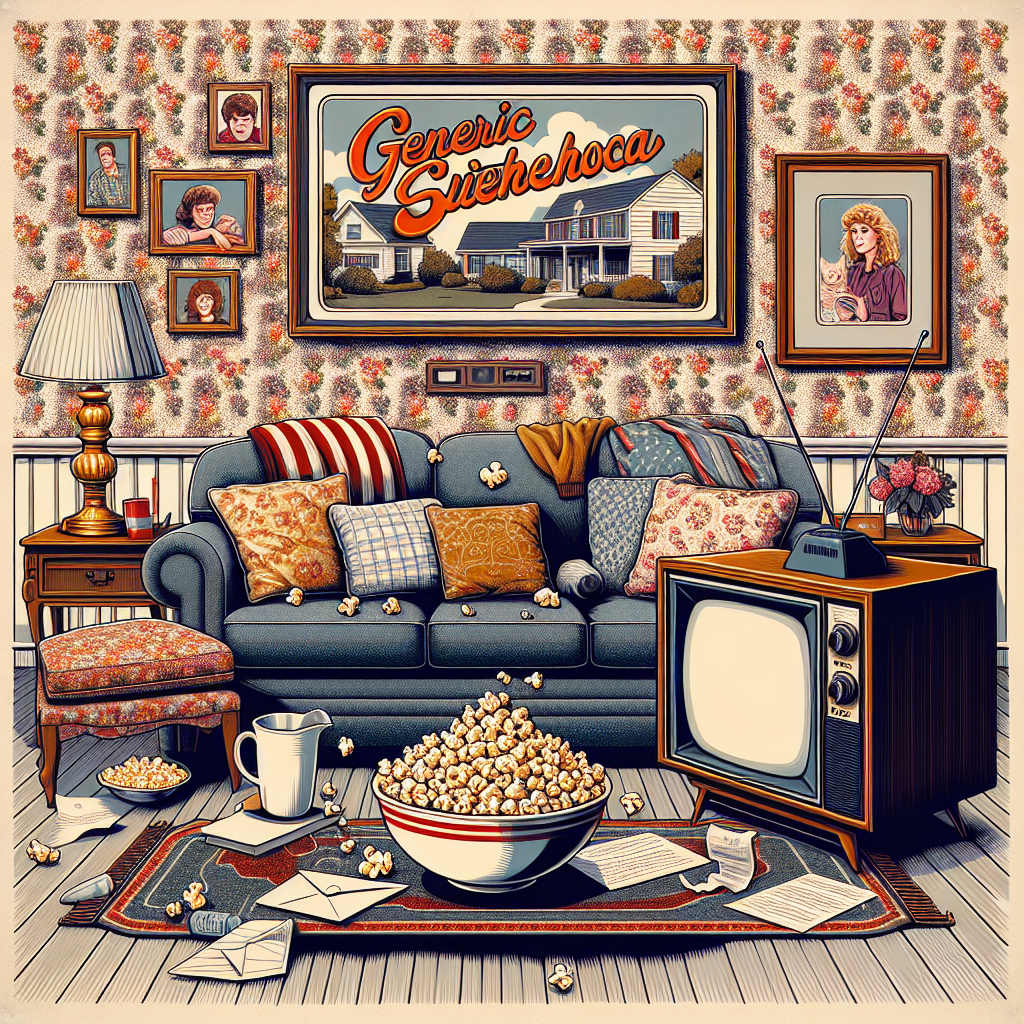Whoʼs the Boss? (1984): A Comprehensive and Reflective Analysis
Introduction
"Who’s the Boss?" made its debut on ABC in 1984, during an era characterized by shifting gender roles and evolving family dynamics. Created by Martin Cohan and Blake Hunter, the sitcom starred Tony Danza as Tony Micelli, Judith Light as Angela Bower, Alyssa Milano as Samantha Micelli, Danny Pintauro as Jonathan Bower, and Katherine Helmond as Mona Robinson. This show not only became a cultural touchstone during its eight-season run but also reflected, challenged, and influenced societal norms of its time.
Significance in Television History
In the context of television history, "Who’s the Boss?" was significant for several reasons. It flipped traditional gender roles by featuring a male housekeeper employed by a successful female executive, thereby challenging conventional family structures. At a time when the American family sitcom was nearly synonymous with patriarchal leadership, "Who’s the Boss?" dared to ask, "What if a woman could provide, and a man could nurture?"
The show earned a steadfast viewership and critical acclaim, winning numerous awards and nominations, including an Emmy for Katherine Helmond. Its approach to themes such as gender equality, single parenthood, and career aspirations resonated with audiences and set a precedent for future television series.
Main Themes and Character Arcs
-
Gender Role Reversal:
- Tony Micelli: A former baseball player turned housekeeper, Tony is the quintessential "Mr. Mom." He fulfills domestic responsibilities ably, taking care of cooking, cleaning, and parenting. Unlike other male characters who might feel emasculated by such a role, Tony is confident and proud, which challenges the traditional notions of masculinity.
- Angela Bower: Angela is the career-driven advertising executive, a single mother who represents the working woman of the 1980s—a stark contrast to the typical homemaker role often assigned to women in sitcoms of previous decades.
-
Single Parenthood:
- Both Tony and Angela tackle the challenges of single parenthood. Tony raises his daughter Samantha with love and discipline, instilling values of hard work and humility. Angela, on the other hand, juggles her high-powered job while ensuring her son Jonathan receives the attention and support he needs. The show portrays their struggles, triumphs, and the delicate balance required to make single parenthood work.
- Interpersonal Relationships:
- The show deftly navigates the complexities of friendships, romantic entanglements, and family bonds. The slow-burning romance between Tony and Angela provides a central narrative arc, keeping audiences engaged as they root for the pair to acknowledge their feelings for each other.
Narrative Techniques and Key Episodes
"Who’s the Boss?" employed various narrative techniques that contributed to its success. Through character-driven stories, situational comedy, and heartfelt moments, the show maintained a balance between humor and sentiment.
-
Character Growth:
- Over the eight seasons, characters were allowed to grow and evolve. Tony’s transition from housekeeper to entrepreneur, Angela’s journey in balancing work and personal life, Samantha’s maturation, and Jonathan’s coming-of-age stories are integral to the narrative.
-
Situational Comedy:
- Situations rooted in everyday life, albeit with exaggerated elements, were the bedrock of the comedy. Episodes like "Sam’s Car" (Season 6, Episode 9), where Tony deals with Samantha’s first car, blend humor with relatable parenting dilemmas.
- Heavy Themes through Lightheartedness:
- The series adeptly tackled issues such as sexism, economic challenges, and work-life balance with a light touch. For instance, in "Allergic to Love" (Season 2, Episode 6), Angela’s relationship challenges underscore serious conversations about vulnerability and compatible partnerships, wrapped in comedic situations.
Cultural, Social, and Historical Context
"Who’s the Boss?" reflects several significant cultural and social undercurrents of the 1980s and early ’90s. The rise of women in the workforce, shifting family structures, and changing perceptions of gender roles featured prominently in the series. At a time when traditional gender roles were being questioned, Angela’s role as a successful advertising executive offered a progressive model of female empowerment.
However, the show was careful to balance these progressive elements with traditional values, ensuring broad appeal. For instance, Tony’s traditionally masculine traits and Angela’s moments of vulnerability kept the characters relatable, bridging the gap between evolving societal norms and longstanding traditions.
Legacy and Lasting Influence
"Who’s the Boss?" left an indelible mark on television and popular culture. It paved the way for subsequent sitcoms that featured non-traditional families, such as "Full House" and "The Nanny." By normalizing gender role reversals and presenting empowered female characters, it contributed to the gradual shift in how women and men were portrayed on screen.
The show enjoys continued popularity through syndications and streaming platforms, providing new generations with insights into a transformative era in television history. The themes and character dynamics remain relevant, engaging audiences with timeless questions about family, work, and love.
Conclusion and Reflective Questions
"Who’s the Boss?" was more than just a sitcom; it was a mirror reflecting the societal changes of its time, while also influencing the future direction of television. As we consider its relevance today, we might ask ourselves:
- How do the themes of "Who’s the Boss?" resonate with contemporary conversations about gender roles and family dynamics?
- What current television shows continue the legacy of challenging traditional norms, and how are they received by today’s audiences?
Reflecting on these questions can deepen our appreciation of the show’s impact and help us understand the ongoing evolution of societal values as mirrored in popular culture.
Got more questions? Our personalized TV Explorer AI assistant is here to help. Click here to start a conversation!
[Advertisement]
Want to see the deeper significance behind your favorite TV shows? Discover how ANY show relates to positive biblical principles with TV and Scripture GPT from BGodInspired.com. Click here to gain insights that go beyond the screen!
[Advertisement]

